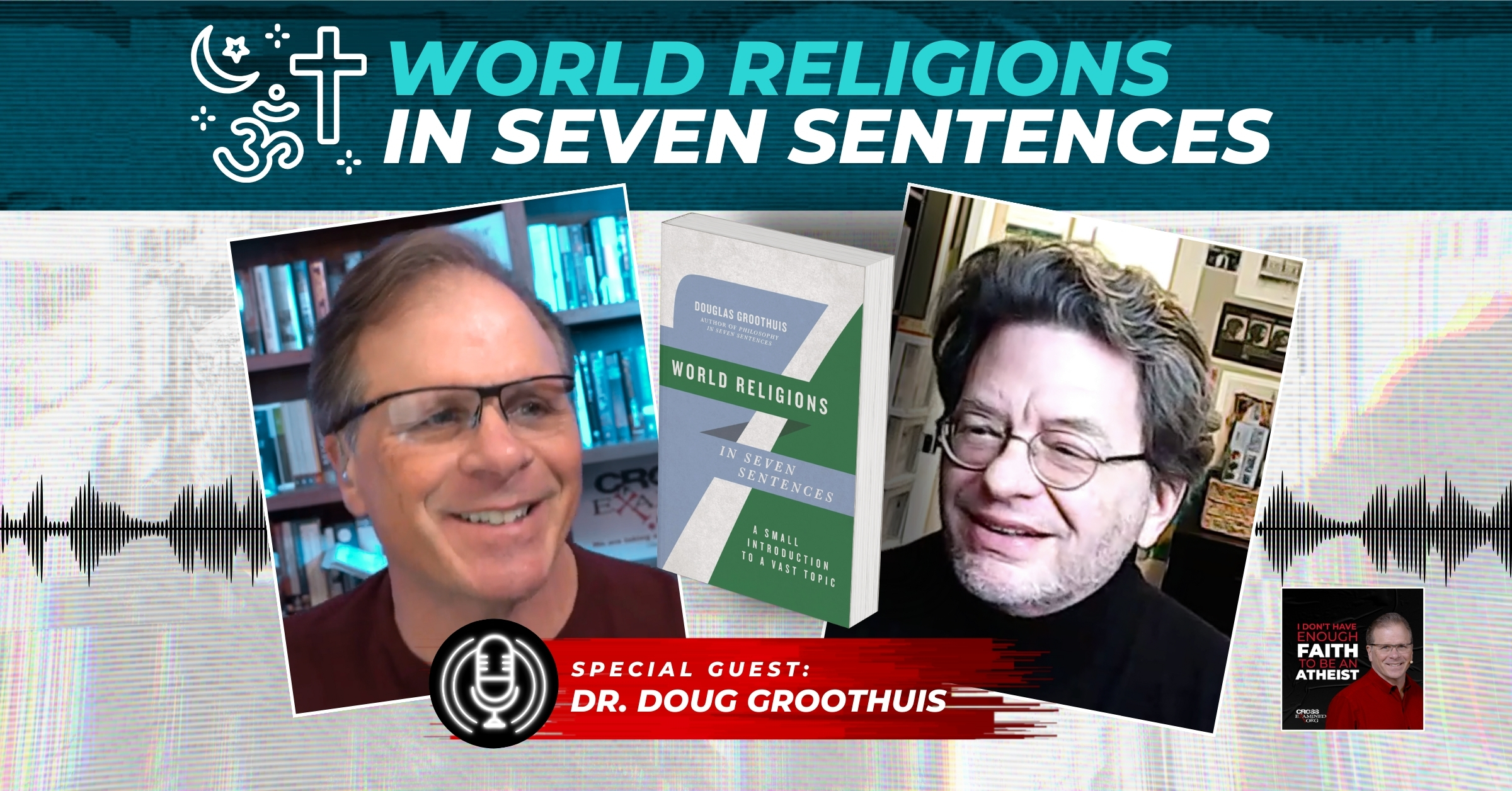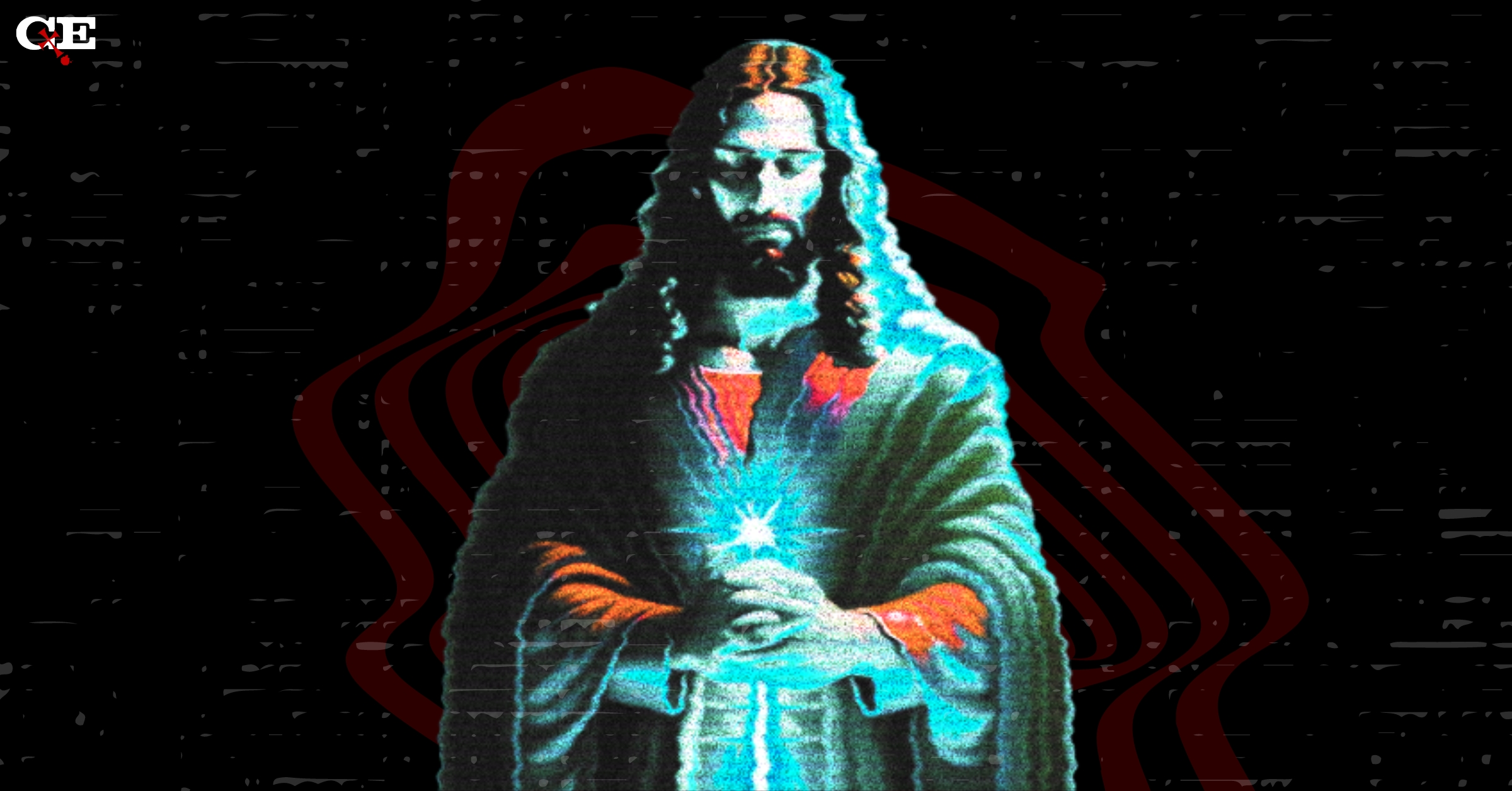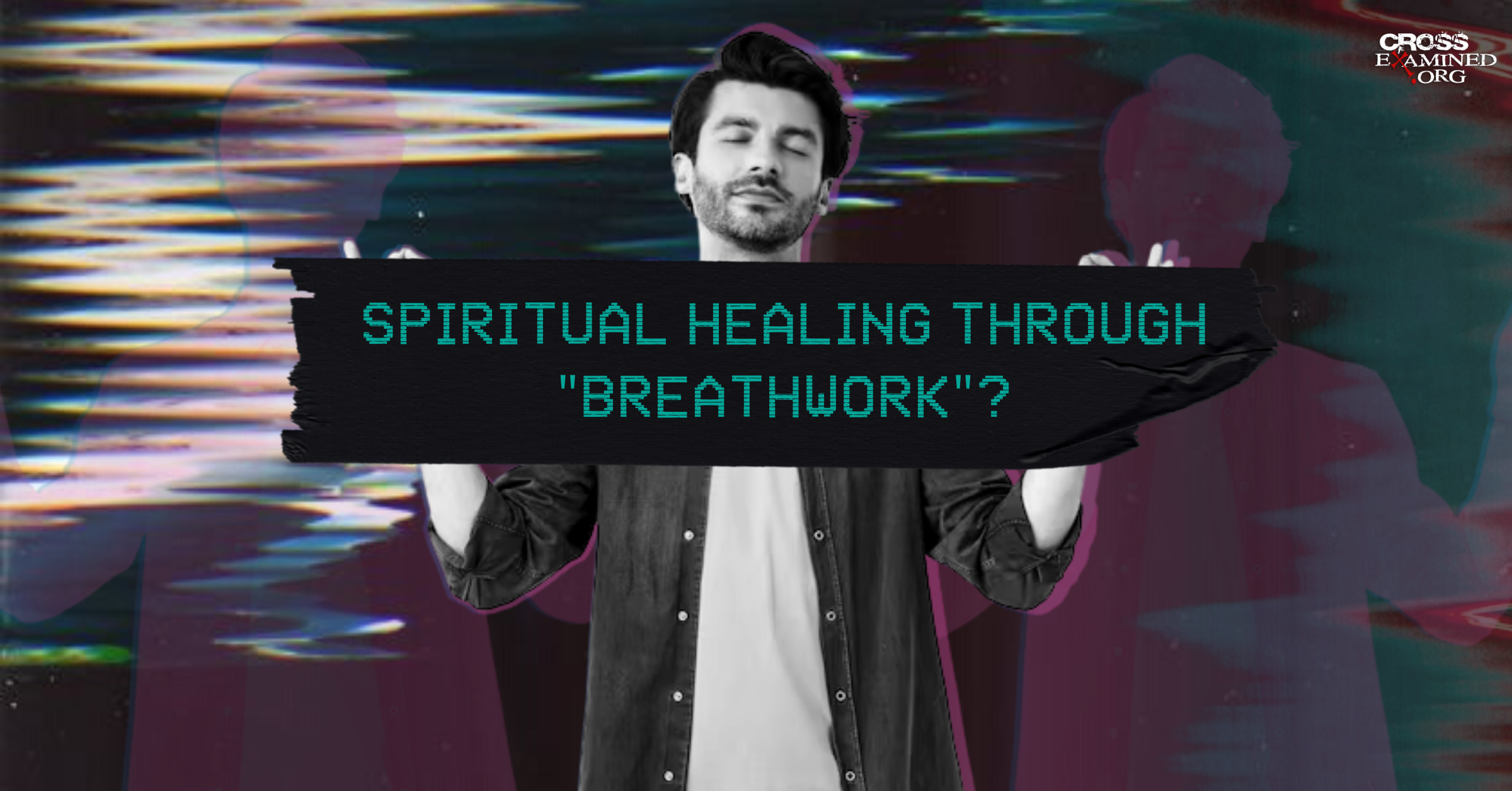Several years back my eldest son who was in fifth grade at the time was brushing his teeth and getting ready for bed. He stepped into the hall and yanked the toothbrush out of his mouth, slinging toothpaste against the wall, and asked, “Dad, dad! What about those people who have never heard about Jesus? Do they go to hell?”
First, what fifth grader thinks about such things when they are brushing their teeth (apparently mine). Second, this has been one of the formidable issues that I believe any reflective Christian can contemplate.
The issue at hand is that it seems unfair to us for God to not provide salvation to someone just because they did not get a chance (because of historical or geographical reasons) to hear the gospel when surely some of them would have accepted it if they had heard it.
In helping reflect on this issue properly consider the graph below. The challenge is “it is unjust (i.e. – unfair) for God to condemn those who never had an opportunity to hear the Gospel.”
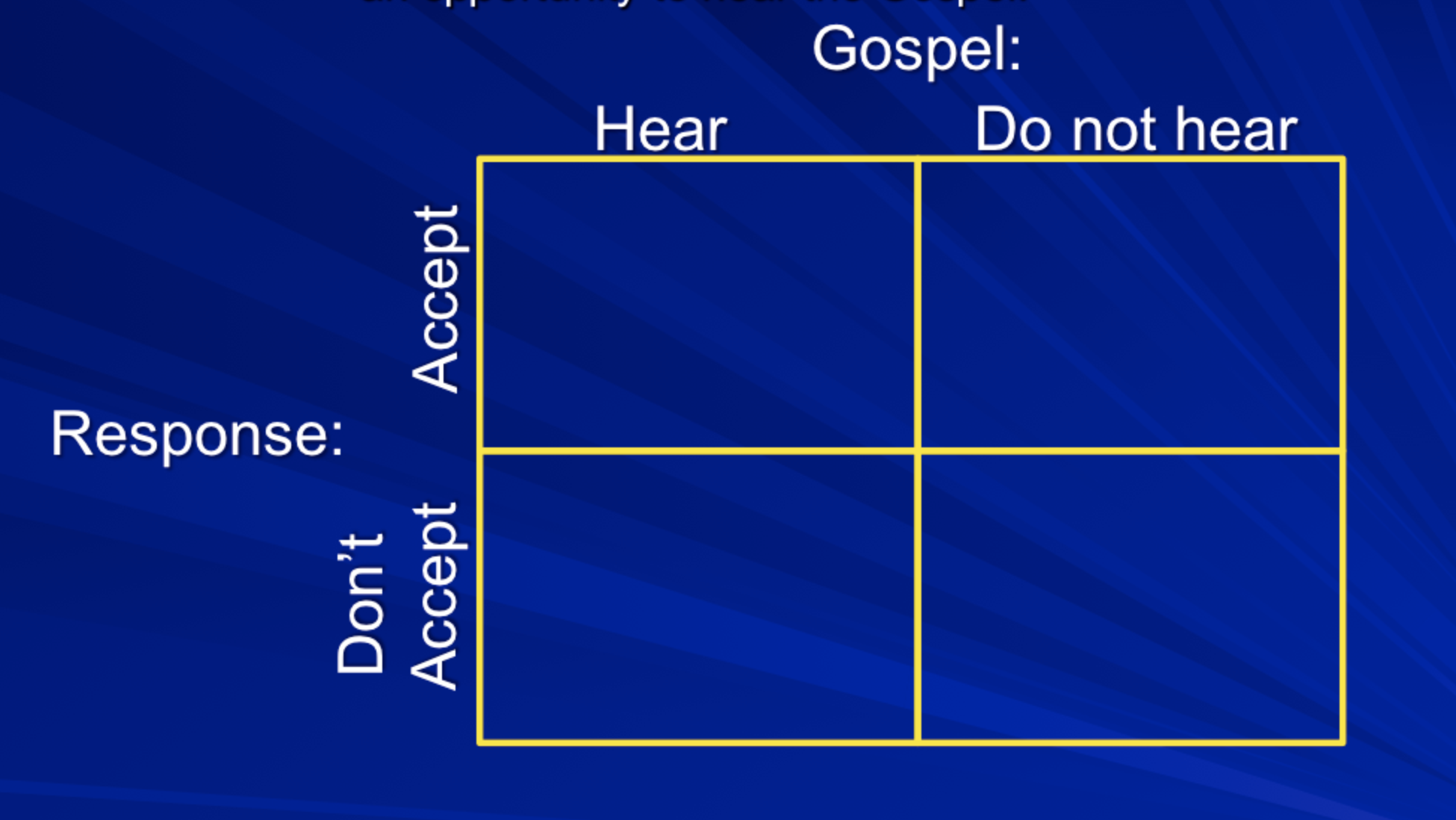
According to the graph there are four types of people in relation the gospel being heard or not heard crossed with people freely accepting or rejecting the gospel.
The top left quadrant are people who hear the gospel and freely accept it, the bottom left is people who hear the gospel and freely reject it, and the bottom right are people who don’t hear the gospel but if they did they would freely reject it. I contend that these three categories of people are created. When I say created, I don’t mean they are made to accept or reject, I mean they are brought into existence with free will and it is their own free choice in accepting and rejecting the gospel.
The bottom right category deserves come explanation. These people, who don’t hear the gospel, would have freely rejected the gospel but will never hear it. God is under no obligation to get the gospel to these people because they, under their own free will, would reject the gospel. Besides that, the charge of injustice is about the fourth category, the top right.
The top right category of people is where the issue resides. These people never hear the gospel, because of either historical or geographical accident. For example, the 2nd century inhabitants of North America had no opportunity to hear the gospel because of their location and time of existence. There is no way the gospel could have been delivered to them by evangelists or missionaries coming down from the disciples. These people seem to get a raw deal.
But possibly, given Gods infinite wisdom, knowledge, and power he doesn’t allow such people to be created. Now, if that is the case, which it surely seems possible (that is, there is no logical reason to think it is impossible), then there are no people who would have freely accepted the gospel, but never had a chance to hear it. This would ensure that anyone who would freely accept the gospel, God, being all-knowing and all-powerful, creates them in the time and place to ensure that they hear the gospel and freely accept it. This absolves God of any wrong because there are no people who would have freely accepted the gospel but did not get a chance to hear it.
It is just a model, it might be the way reality works it might not, but the point is, if a working model can be developed to absolve God then God, in his infinite wisdom and knowledge and power, should be capable of taking care of reality. And there seems to be some scriptural support for this model in Act 17:24-27,
“The God who made the world and everything in it, being Lord of heaven and earth, does not live in temples made by man, nor is he served by human hands, as though he needed anything, since he himself gives to all mankind life and breath and everything. And he made from one man every nation of mankind to live on all the face of the earth, having determined allotted periods and the boundaries of their dwelling place, that they should seek God, and perhaps feel their way toward him and find him. Yet he is actually not far from each one of us.”
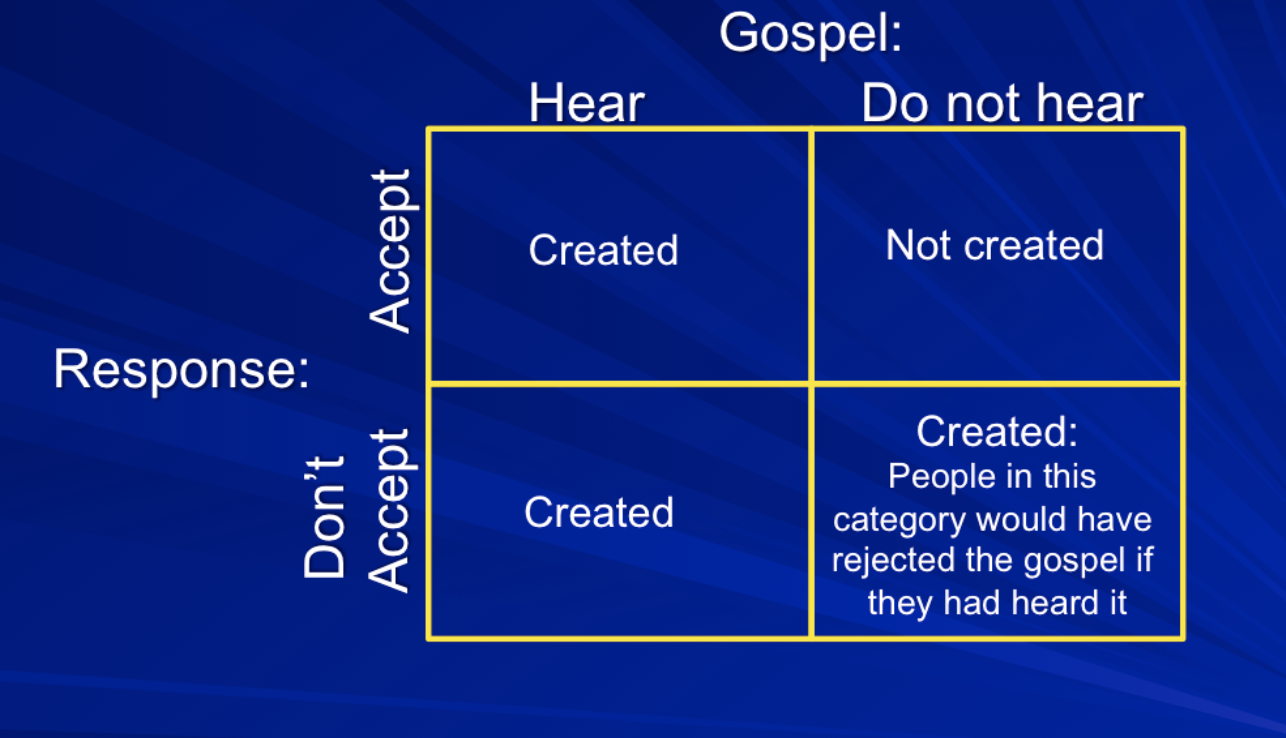
So, when my son asked several year ago “What about those people who have never heard about Jesus? Do they go to hell?” I was able to honestly and confidentially answer, “Son, if they would freely accept the gospel, God knows that and he ensures that the gospel is delivered to them.” He was satisfied with that answer and went to bed. Hopefully, you find this answer satisfying as well.
Here are a couple of useful resources on this topic:
- William Lane Craig, “How Can Jesus Be the Only Way?” [YouTube Video] Reasonable Faith (2019), at: https://youtu.be/RRyq6RwzlEM
- _______, “The Problem of Those Who Have Never Heard,” [YouTube Video] Reasonable Faith (2020), at: https://youtu.be/HORwhXSgelQ
- _______, “What About Those Who Have Never Heard?”[Podcast] Reasonable Faith (2008)
- _______, “How Can Christ Be the Only Way to God?”[article] Reasonable Faith.org
- _______, “Is Jesus the Only Way to God?” in On Guard (David C. Cook, 2010), chapter 10.
- Paul Copan, “If Jesus is the Only Way to God, What About Those Who Have Never Heard of Him?” in True for You but Not For Me (Bethany House, 2009), Chapter 33.
Recommended Resources:
Can All Religions Be True? mp3 by Frank Turek
Counter Culture Christian: Is the Bible True? by Frank Turek (Mp3), (Mp4), and (DVD)
Jesus, You and the Essentials of Christianity by Frank Turek (INSTRUCTOR Study Guide), (STUDENT Study Guide), and (DVD)
Was Jesus Intolerant? by Frank Turek (DVD and Mp4)
J. Steve Lee has taught Apologetics for over two and a half decades at Prestonwood Christian Academy. He also has taught World Religions and Philosophy at Mountain View College in Dallas and Collin College in Plano. With a degree in history and education from the University of North Texas, Steve continued his formal studies at Southwestern Baptist Theological Seminary with a M.A. in philosophy of religion and has pursued doctoral studies at the University of Texas at Dallas and is finishing his dissertation at South African Theological Seminary. He has published several articles for the Apologetics Study Bible for Students as well as articles and book reviews in various periodicals including Philosophia Christi, Hope’s Reason: A Journal of Apologetics, and the Areopagus Journal. Having an abiding love for fantasy fiction, Steve has contributed chapters to two books on literary criticism of Harry Potter: Harry Potter for Nerds and Teaching with Harry Potter. He even appeared as a guest on the podcast MuggleNet Academia (“Lesson 23: There and Back Again-Chiasmus, Alchemy, and Ring Composition in Harry Potter”). He is married to his lovely wife, Angela, and has two grown boys, Ethan and Josh.
Originally posted at: https://bit.ly/44oDZCD


